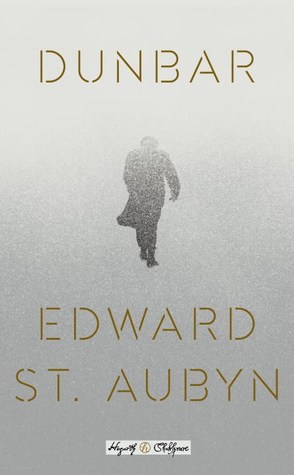Dunbar Edward St Aubyn (2017)
The Hogarth Shakespeare Project in London has been commissioning highly regarded novelists to produce new versions of many Shakespeare tales. Edward St Aubyn has tackled Shakespeare’s King Lear with his novel Dunbar.
In St Aubyn’s version, the monarch Lear is now a modern-day oligarch, the billionaire media mogul Henry Dunbar. Like Lear, Dunbar has three adult daughters, and he hands over his kingdom/empire to the elder two, Abby and Megan, cutting out the youngest, Florence, even though he loves her dearly. Abby and Megan are a wicked pair. Even if you don’t find their sadistic sexual practices alarming (yup, these pages are steamy), you’re not likely to sympathize with them as you learn how they’ve had their father drugged and then sequestered in a nursing home in a remote area of England. “These [two elder] Dunbar girls were arrogant, imperious, and tough, but toughness was not strength, imperiousness was not authority, and their arrogance was an unearned pride born of an unearned income.” (73)
Meanwhile, daughter Florence lives with her family in the United States and doesn’t really care if she inherits the family business. She has what she considers a more than adequate bankroll. “She was only capable of being independent because she had been adored in the first place, but a man as possessive as her father could not experience her autonomy as a compliment, or protect himself from mistaking her sisters’ acquisitiveness for love.” (43) Although she doesn’t relish a battle, Florence enters the arena with her two sisters out of concern that her father is being mistreated. What ensues seems scripted for an action movie, complete with suspenseful chase scenes.
You can, of course, buzz by all this conflict in your reading and busy yourself mentally by pairing up the characters in Dunbar with their Shakespearean counterparts. (As I read, I had always in the back of my brain the famed plot of the drama.) Dunbar’s lawyer Wilson is pretty clearly King Lear’s Kent, for example, and Dunbar’s physician, Dr. Bob, is Edmund. I liked the transformation of King Lear’s Fool into the retired comedian Peter, a sidekick to Dunbar in nursing-home imprisonment. Peter is funny in a grim way, but Shakespeare’s Fool has a lot better lines.
Face it: rewriting Shakespeare is a daunting task. Anne Tyler tried it with Vinegar Girl: The Taming of the Shrew Retold in 2016, and disappointed me, though Tyler is usually formidable as a novelist. With King Lear, a modern writer has to summon the extraordinary pathos of familial disloyalty as well as the ultimate futility of earthly life. St Aubyn doesn’t quite do that for me, though his Dunbar would be a serviceable standalone novel about the excesses of today’s moneyed classes—perhaps even a commentary on Donald Trump. While Shakespeare’s iambic pentameter inspires constant awe, St Aubyn’s prose soars only occasionally, as in this passage: “Nothing in his [Dunbar’s] ascent to power had prepared him for the experience of the last weeks and in particular of the last few days, which seemed to have overrun his mind with a kind of knowledge that he was unable to make sense of. Like a deluge rushing onto a flat, rocky plain, with no slope to direct it or soil to absorb it, it had obliterated all familiar landmarks without bringing any new life in return. How could she [Florence] reach him in the middle of that sterile flood?” (177)
I recommend reading Dunbar as simply a contemporary novel. If, however, you want a truly great retelling of King Lear, read Jane Smiley’s 1991 masterpiece, A Thousand Acres, which won the Pulitzer Prize.








